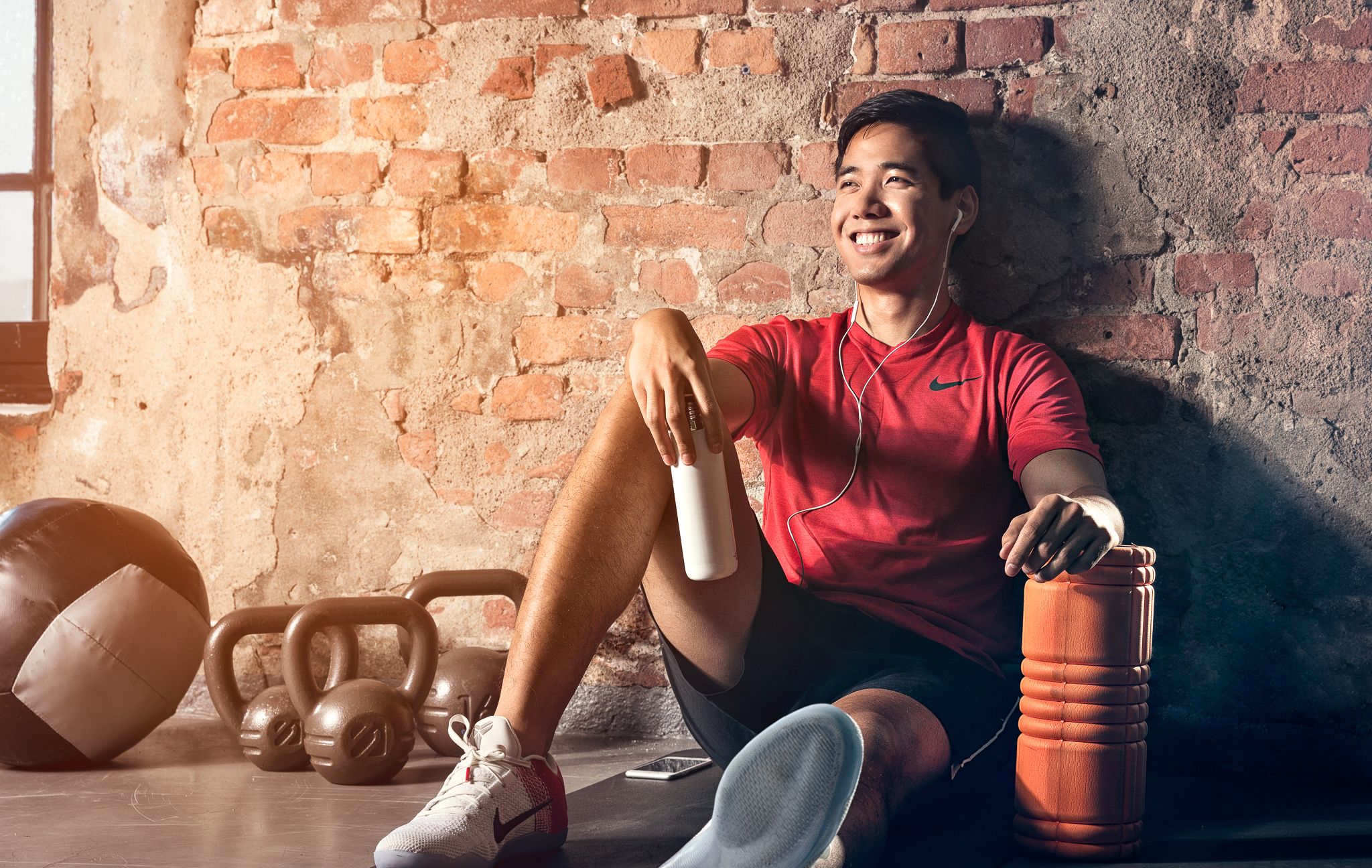Eating habits and exercise
Being aware of your own eating habits can contribute to surplus and well-being in everyday life, as well as influencing your performance in training. With a good base in your diet, you lay a good foundation for a good health. It is about finding a meal rhythm that works for you, having a varied intake of fruit and vegetables, and good sources of protein and whole grain products.
Your eating habits can affect how you perform in training and how quickly you recover after a training session. This is very individual. Unfortunately, there is no conclusion, but there are some recommendations that enable us to make some assessments.
Meal rhythm: when did you eat your last meal, and do you need a refill before you start your training session?Duration and intensity of the training session: how long is your session planned for and what is the intensity? The total load during the day: what is the relationship between everyday activity, sitting still and exercise? How well did you sleep?
The body can store energy, and the most accessible store we have is the glycogen stores (carbohydrate stores) in the muscles and liver. During training, these stores will be depleted gradually, and in some cases completely during long-term and/or highly intensive training. This can contribute to poorer performance and recovery, and it is therefore important that food intake is adjusted according to how active you are.
What works for some may not work for others. Listen to your body and make decisions for you. Rest and good sleep routines also contribute to good performance and recovery.
.jpg.jpg?quality=80)
Food before training
Before training, it is beneficial to drink water and maintain fluid balance. Main meals should be taken 2-3 hours before training. After the meal, the body needs time to digest the food, and if you rush straight into the training session, it can lead to discomfort and nausea.
A main meal can be:
- Oatmeal with milk, berries and nuts
- Slices of whole grain bread with protein-rich toppings (cheese, ham, eggs and so on)
- Meat, fish or beans/lentils with side dishes (use the plate model)
Should you get hungry or empty before training, it may be good to eat a smaller meal about one hour before training.
A snack can be:
- Fruit, smoothie, energy bar, nuts, yogurt, chocolate milk and banana, or similar.
Do I need to fill up during training?
If you have covered your need for drink and food intake during the day, you probably do not need to fill up during the training session.
For training that lasts less than an hour, we do not necessarily need anything extra. If the training session is under 90 minutes, and/or with a high intensity, and you have a small carbohydrate store, it may be beneficial to have some fill-up so that you do not run out. Then it can be beneficial to have fluid intake and some carbohydrate, such as:
- Sports drink, juice, banana, raisins, sports bars or similar with some water during the breaks.
If the training session lasts longer than 90 minutes, it is beneficial to fill up with some extra to delay the feeling of fatigue and maintain the intensity during the training. This is done by fluid intake and carbohydrate. It could be, for example:
- Sports drink, juice, slices of bread with jam or honey, muesli bars and bananas

Food after training
The body needs help to build itself up during the recovery phase, and you can help with that by eating good food after training. Food that provides both carbohydrates and proteins help with that. Protein contributes to the building of muscle mass, and we need carbohydrates to replenish the stores of the body's main source of energy.
A good rule to remember is to eat a small meal within 30 minutes after training, within 1-2 hours after training, or wait until the next main meal. Take an assessment of when your last meal was and what your needs are. The most important thing is that you arrange according to your everyday life, listen to your body's signals and find the path that suits you best.
Talk to a nutritionists
Would you like to learn more about how what you eat and drink affects you? How you, with small adjustments, can get both better health and more effect from your training sessions? Then you should talk to one of our nutritionists. Our nutritionists are part of our PT-team and you buy sessions for guidance in the same way as PT sessions.Buy nutrition guidance here.
Sources:Sports nutritionThe activity manual (Aktivitetshåndboken)